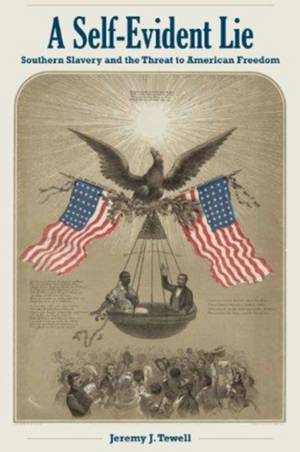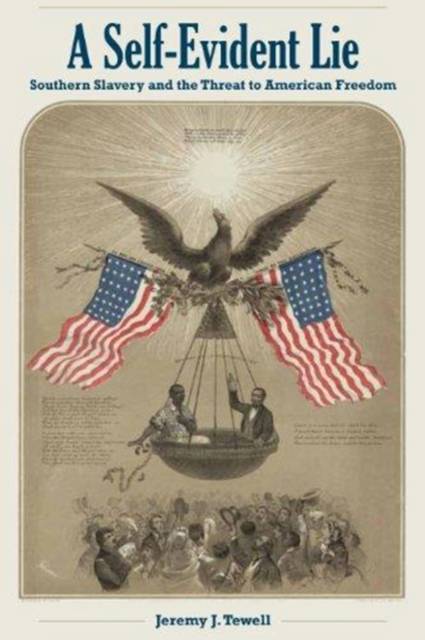
- Afhalen na 1 uur in een winkel met voorraad
- Gratis thuislevering in België vanaf € 30
- Ruim aanbod met 7 miljoen producten
- Afhalen na 1 uur in een winkel met voorraad
- Gratis thuislevering in België vanaf € 30
- Ruim aanbod met 7 miljoen producten
Omschrijving
In trenchant and graceful prose, Jeremy Tewell argues that some Republicans, most notably Abraham Lincoln, held that the only effective safeguard of individual liberty was universal liberty, as expressed in the Declaration of Independence. As long as Americans believed that "all men" were endowed with inalienable rights to life, liberty, and the pursuit of happiness, everyone's liberty would be self-evident, regardless of circumstance.
Conversely, the justifications meant to exclude a segment of society from the rights of man worked to destroy the self-evidence of those very rights. Therefore, by failing to repudiate slavery--thus rejecting the universality of human liberty--northerners made themselves vulnerable to proslavery rationales, especially when they happened to occupy a position of political, social, or economic weakness. Black skin had been stigmatized as a badge of servitude, but there was nothing to guarantee that white skin would always serve as an unimpeachable badge of freedom.
This was a major theme in Lincoln's campaign against Stephen A. Douglas and was a key argument against the use of popular sovereignty as the method for determining slavery's status in the territories. According to Tewell, Lincoln's greatest challenge was to convince northern audiences that simple indifference to slavery was itself inimical to the liberty of whites.
A Self-Evident Lie will intrigue anyone interested in issues related to Lincoln, slavery and antislavery, the Civil War, and American intellectual history.
Specificaties
Betrokkenen
- Auteur(s):
- Uitgeverij:
Inhoud
- Aantal bladzijden:
- 176
- Taal:
- Engels
- Reeks:
Eigenschappen
- Productcode (EAN):
- 9781606352250
- Verschijningsdatum:
- 14/04/2014
- Uitvoering:
- Paperback
- Formaat:
- Trade paperback (VS)
- Afmetingen:
- 152 mm x 229 mm
- Gewicht:
- 226 g

Alleen bij Standaard Boekhandel
Beoordelingen
We publiceren alleen reviews die voldoen aan de voorwaarden voor reviews. Bekijk onze voorwaarden voor reviews.











